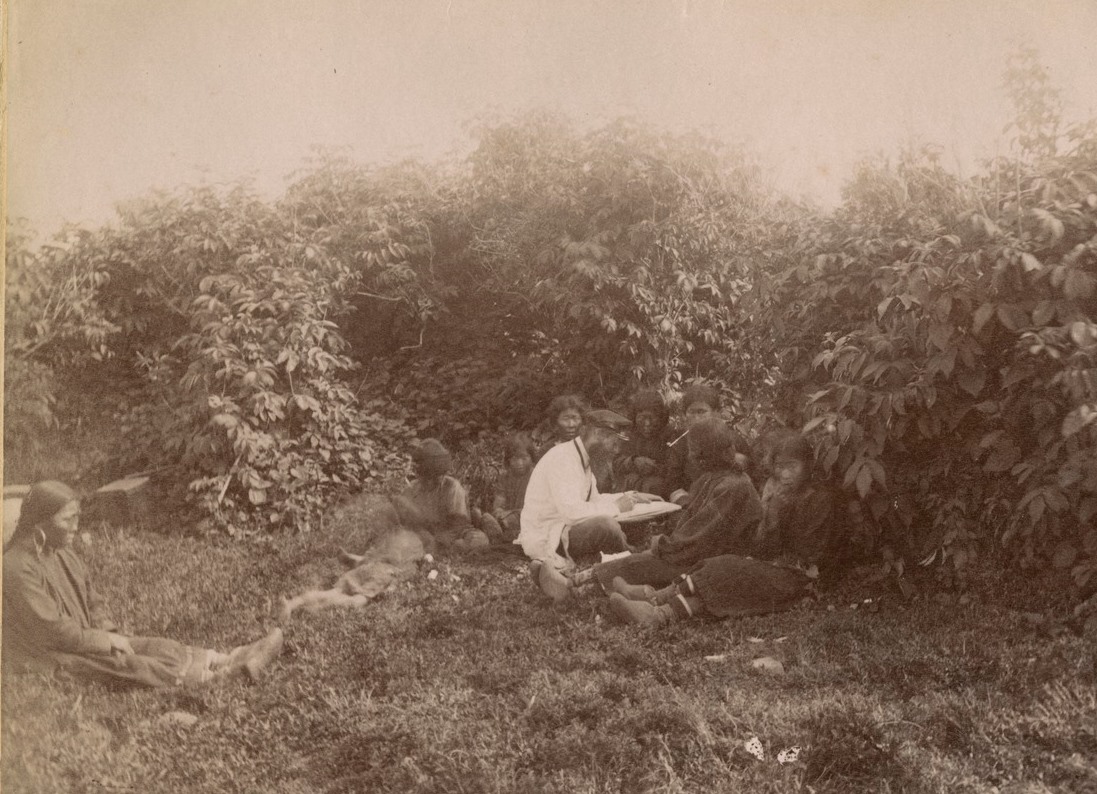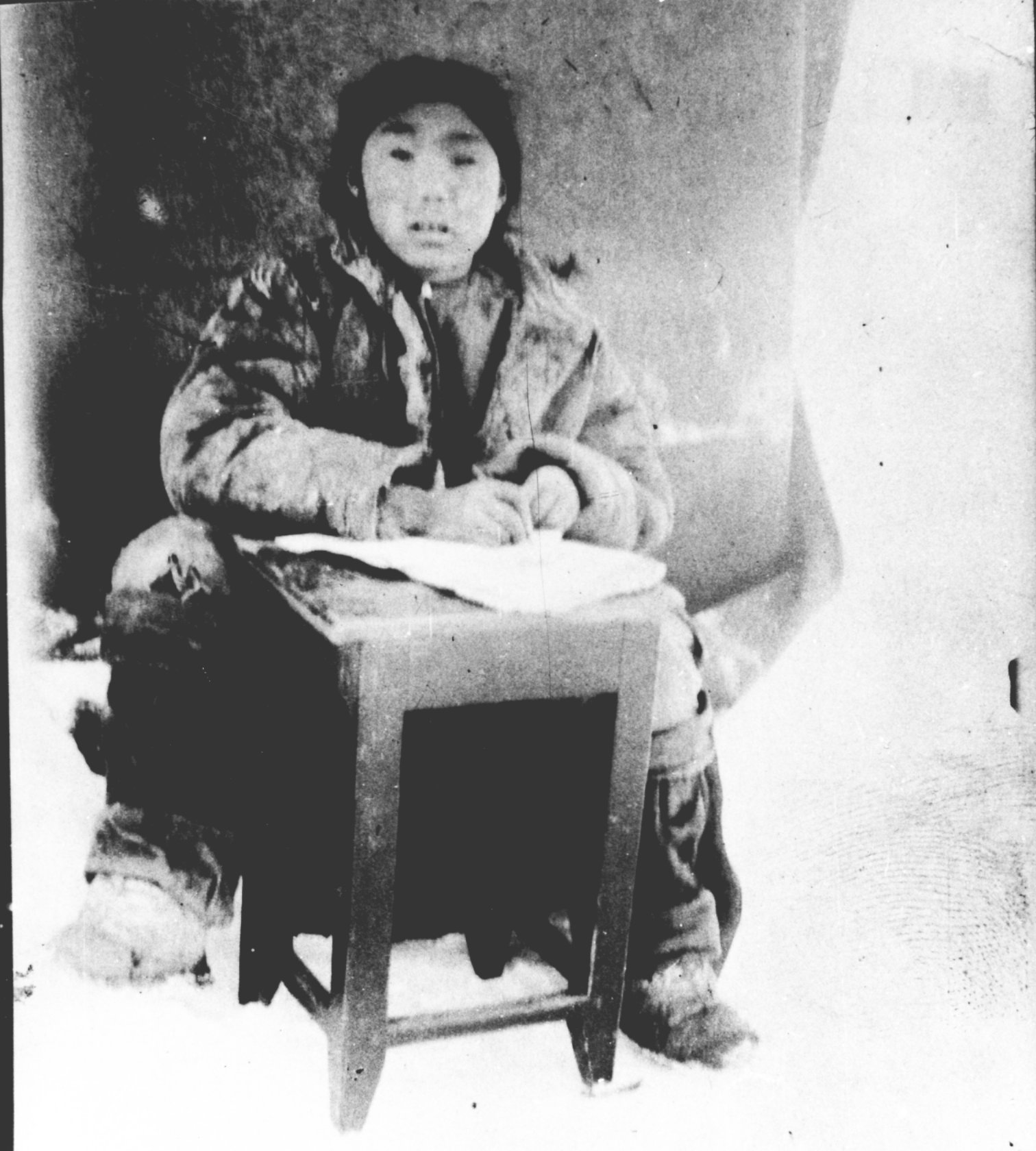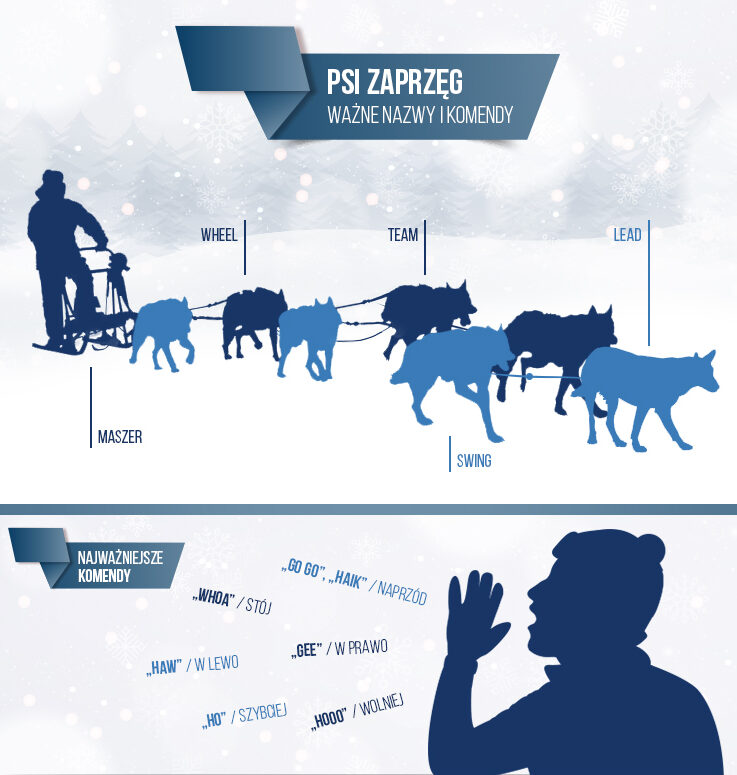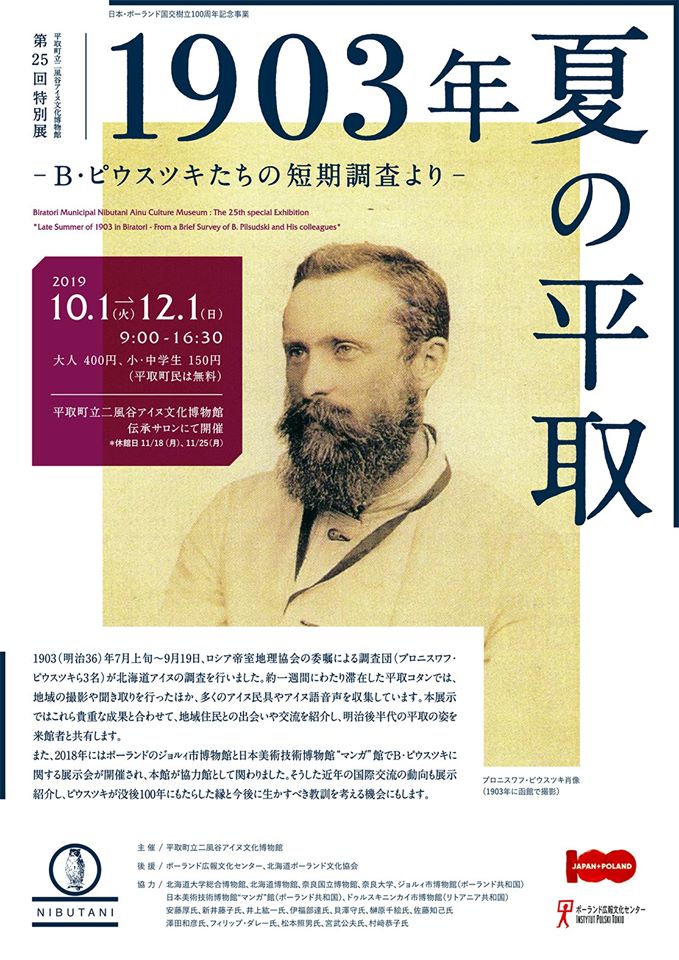
Beauty of Life
Songs of the Nivkh People
Beauty of Life
A song of the Nivkh people written by Bronisław Piłsudski and dedicated to him; translated into Russian by Bronisław Piłsudski
Translation into Polish by Jadwiga Rodowicz-Czechowska and from Polish into English by Piotr Jaskólski
Based on: “News from the Bronisław Piłsudski Heritage Institute,” no. 1
Songs dedicated to me, no. 1, p. 111
Song 1
Churka’s sister Vunit, a poet, knowing that I like songs very much, decided to compose a song in which she addresses me. When I traveled to Gilyak villages to teach the residents about salting fish, she was living in Kezirivo located on a small island on the Tym River near Mozhbvo. She came to see me, but I was not there, and then she left with other Ainus for Arkov (in 1898).
Alyakhtund
Akan-tokh ale hynd
When I lived in Kezirivo,
I heard them talking about you,
Both, down- and upstream.
I came to the place where boats are moored,
Looked far away, but all I see is water.
I live on an island like a hare…
The tramping of your horse can be heard from the ground,
There is even a bell ringing, somewhere on the ridge of the mountain,
I’m looking for you on the road you took to go away.
Where are you?
I also came to your house, but it is empty;
Each of the rooms is empty…
Oh, my grief, my grief!
Where many eyes are looking at you,
There you don’t mention me.
Where you talk to so many,
That’s where you forget me.
I hold a short letter in my hand instead of you.
I press your letter against my neck, instead of you.
You don’t know what I will do; I will fall asleep
And then I will see you.
I inquire about you in the morning and in the evening:
“Apparently he’s on the other side of the Arkovsk Mountain!
And maybe he’ll be back tomorrow, or the day after.”
I inquired about you,
Wanting to see you at least from afar.
After all, you rode up and down the river,
You passed me by! I heard people
Talk about you.
A tear from the left eye flows and falls,
The right calf does not want to go.
I will pine away, and the nights will not pass.
I will go through the Mozbov tundra,
I will look for you.
I arrived in the heart of the tundra,
The right calf bends
And cannot go any further.
I am resting.
I have rested and now
I want to move quickly. But do I have to?
It’s only one day’s journey,
And I have been going for so many days.
I feel so uneasy…
The right hand does not want to hold the stick,
On which I support myself…
I will not be able to reach you.
One can’t go over the high mountains!
And from the opposite direction,
On the road you took to go away,
Horse-drawn carriages are moving. “That’s him!” –
I am thinking. – They are already close,
They are approaching me
And passing by. But it’s not you, it’s someone else.
It’s hard for me.
I’m going home today.
I will take a look at the place
Through which you went,
And a tear fell from your right eye, where you sat,
Like a drop of rain.
Oh my pain, you, and my sorrow for you!
I’ll go back, I’ll cross the bridge.
Through the Poluvka river
Carriages are passing by.
Stroking my hair, I looked at them.
It’s lightening up already.
Opposite the white cape
I saw something flashing.
Such a nice thought: that I am looking for you like a mother,
And you won’t even think that I’m waiting.
If you see many people around you,
You forget about me.
And I am not thinking about you
Only when I’m asleep.
You’re the only one I remember, and you don’t know it.
You will remember me,
Only when you look into my eyes.
You forgot as soon as you left
And you remembered only
When you saw me.
When I was hungry for you,
I asked for you.
And you – you forgot.
So hold my letter instead of me, in your hand,
Even if you are far away, hold it.
And if you think and remember looking at this letter,
Let this thought give you pleasure.

Song 2
Based on: “News from the Bronisław Piłsudski Heritage Institute,” no. 1, p. 113
Before my departure from Sakhalin, some Gilyaks came to Rykovskoye to bid me farewell (31 January 1899) and some of the women expressed their wish that I wrote down the songs they dedicated to me. This song was dictated by Pimka’s wife, a quite greedy and ugly old woman, who judged me in terms of my material possessions. She called it Chvinend tuhus and Chekanu tuhus.
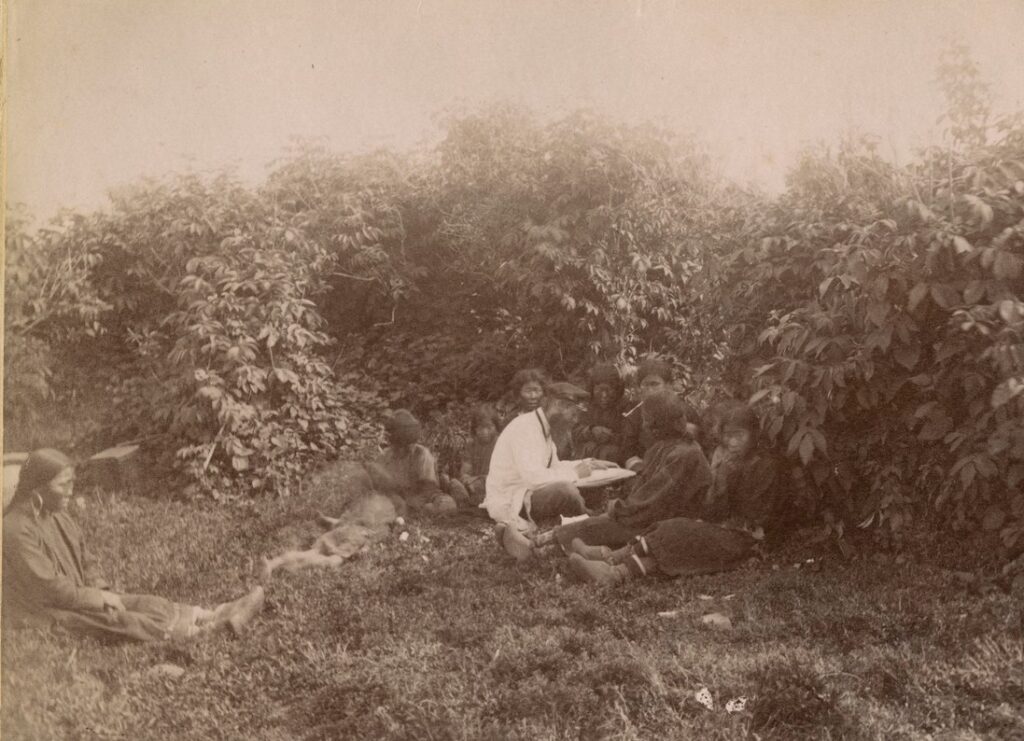
Photo from Bronisław Piłsudski’s Album Containing Photographs of Sakhalin in the collection of the Polish Academy of Arts and Sciences
Chvinend tuhus (words caused by grief for you)
You are going to go to the continent,
You will abandon me and go away.
I love you. Young children and adult women,
They grieve for you. And you are happy to leave.
I feel sorry, but what can I do?
You will forget me,
You will think and abandon.
I feel sorry, but what can I do?
You were like a father;
When we wanted to eat,
You did everything so that we could
Have food to eat.
You were always like a father.
But if you leave, you will abandon me
And who is to say that I will be able to eat
And who will pay for my food?
I keep thinking about myself,
That I feel sorry for you,
While you not even think of me.
Transcription:
Chi kektykh vinynd
Ninykh viinynd
Chi eeimund/ machkyn shank/
Ulyakhynd inyine/
Chvinefuro yanilio
Chi akh pkhohol’ khisvpin
Ynykh vijnyna/ kerifur
Yanile chvinyfur
Yanile pytyk kheta kyrykhar iuivo
Yan itiawkh nany/ nund nund itkh
Inuty/ ersh paranta/ chi nyn ynykh
Vijkhyi hynkra/ nat itygyn
Ininda/ nat chkha kish
Ininda/ koholi mikhish
Chvinefure/ hantokh ehrilio
I came to the place where boats are moored,
I looked far away, but all I see is water.
I live on an island like a hare…
The tramping of your horse can be heard from the ground,
There is even a bell ringing, somewhere on the ridge of the mountain,
I’m looking for you on the road you took to go away.
Where are you?
I also came to your house, but it is empty;
Each of the rooms is empty…
Oh, my grief, my grief!
Where many eyes are looking at you,
There, you don’t mention me.
Where you talk to so many,
That’s where you forget me.
I hold a short letter in my hand instead of you.
I press your letter against my neck, instead of you.
You don’t know what I will do; I will fall asleep
And then I will see you.
I inquire about you in the morning and in the evening:
“Apparently he’s on the other side of the Arkovsk Mountain!
And maybe he’ll be back tomorrow, or the day after.”
I inquired about you,
Wanting to see you at least from afar.
After all, you rode up and down the river,
You passed me by! I heard people
Talk about you.
A tear from the left eye flows and falls,
The right calf does not want to go.
I will pine away, and the nights will not pass.
I will go through the Mozbov tundra,
I will look for you.
I arrived in the heart of the tundra,
The right calf bends
And cannot go any further.
I am resting.
I have rested and now
I want to move quickly. But do I have to?
It’s only one day’s journey,
And I have been going for so many days.
I feel so uneasy…
The right hand does not want to hold the stick,
On which I support myself…
I will not be able to reach you.
One can’t go over the high mountains!
And from the opposite direction,
On the road you took to go away,
Horse-drawn carriages are moving. “That’s him!”
– I am thinking. They are already close,
They are approaching
And passing me. But it’s not you, it’s someone else.
It’s hard for me.
I’m going home today.
I will take a look at the place
Through which you went,
And a tear fell from your right eye, where you sat,
Like a drop of rain.
Oh my pain, you, and my sorrow for you!
I’ll go back, I’ll cross the bridge.
Through the Poluvka river
Carriages are passing by.
Stroking my hair, I looked at them.
It’s lightening up already.
Opposite the white cape
I saw something flashing.
Such a nice thought: that I am looking for you like a mother,
And you won’t even think that I’m waiting.
If you see many people around you,
You forget about me.
And I am not thinking about you,
Only when I’m asleep.
You’re the only one I remember, and you don’t know it.
You will remember me,
Only when you look into my eyes.
You forgot me as soon as you left
And you remembered me only
When you saw me.
When I was hungry for you,
I asked for you.
And you – you forgot.
So, hold my letter instead of me, in your hand,
Even if you are far away, hold it.
And if you think and remember looking at this letter,
Let this thought give you pleasure.
The Nivkh people:
After Izvestiya 5,
E.S. Nitkuk
Book no. 4 by B.O. Piłsudski
From the archives of E.A. Krejnowicz
Song No. 14 was performed with the accompaniment of a Nivkh one-stringed musical instrument – the “Nivkh viola” (“t’ynryn”) or, as stated by B.O. Piłsudski in the footnotes to the song, a “violin.” The love songs were performed with the accompaniment of a “t’ynryn”, using only the tongue as an additional resonator. While playing the musical instrument, the artist touched the string with his tongue, changing the volume of his mouth. By touching the string very rapidly and frequently in such a way, a kind of trill was generated.

